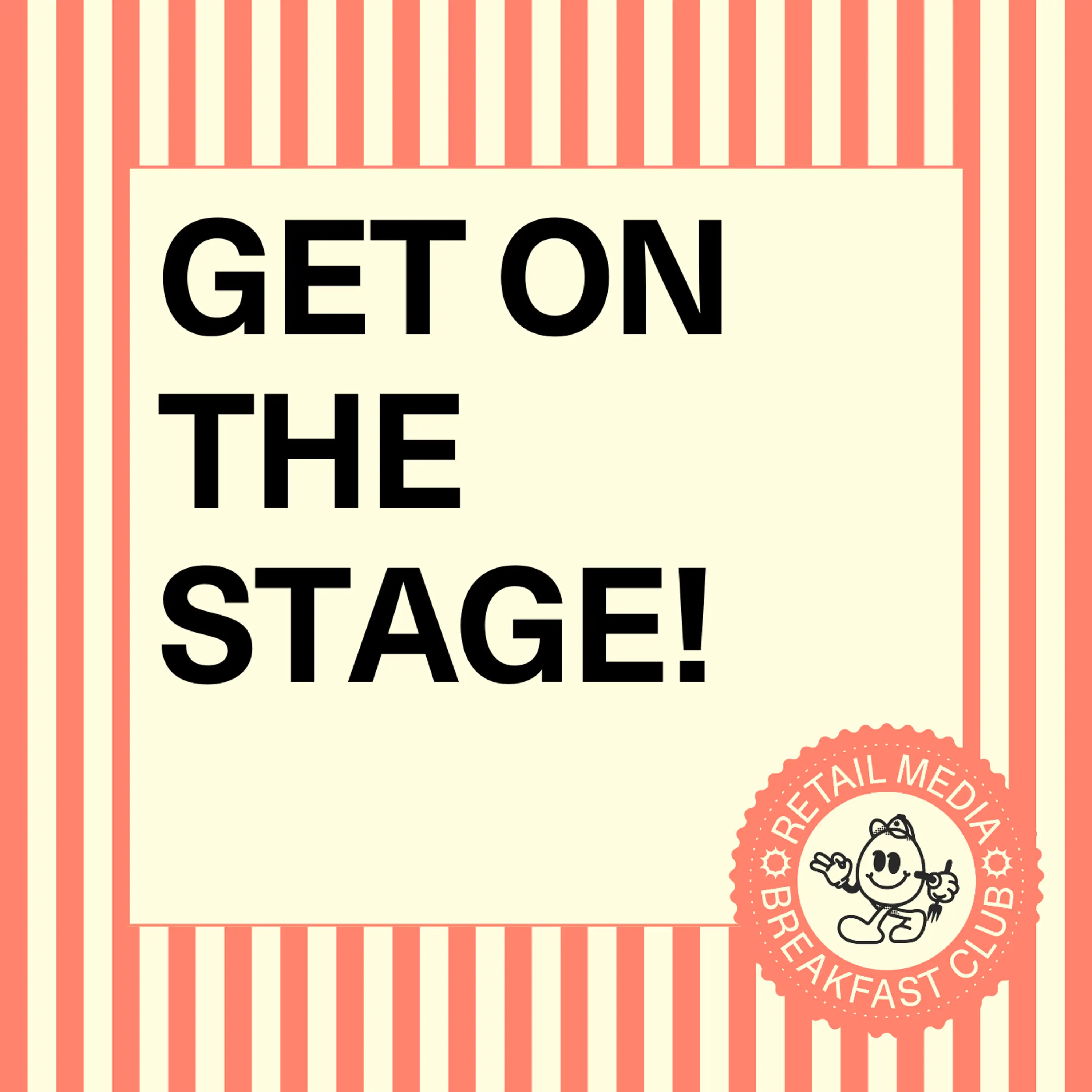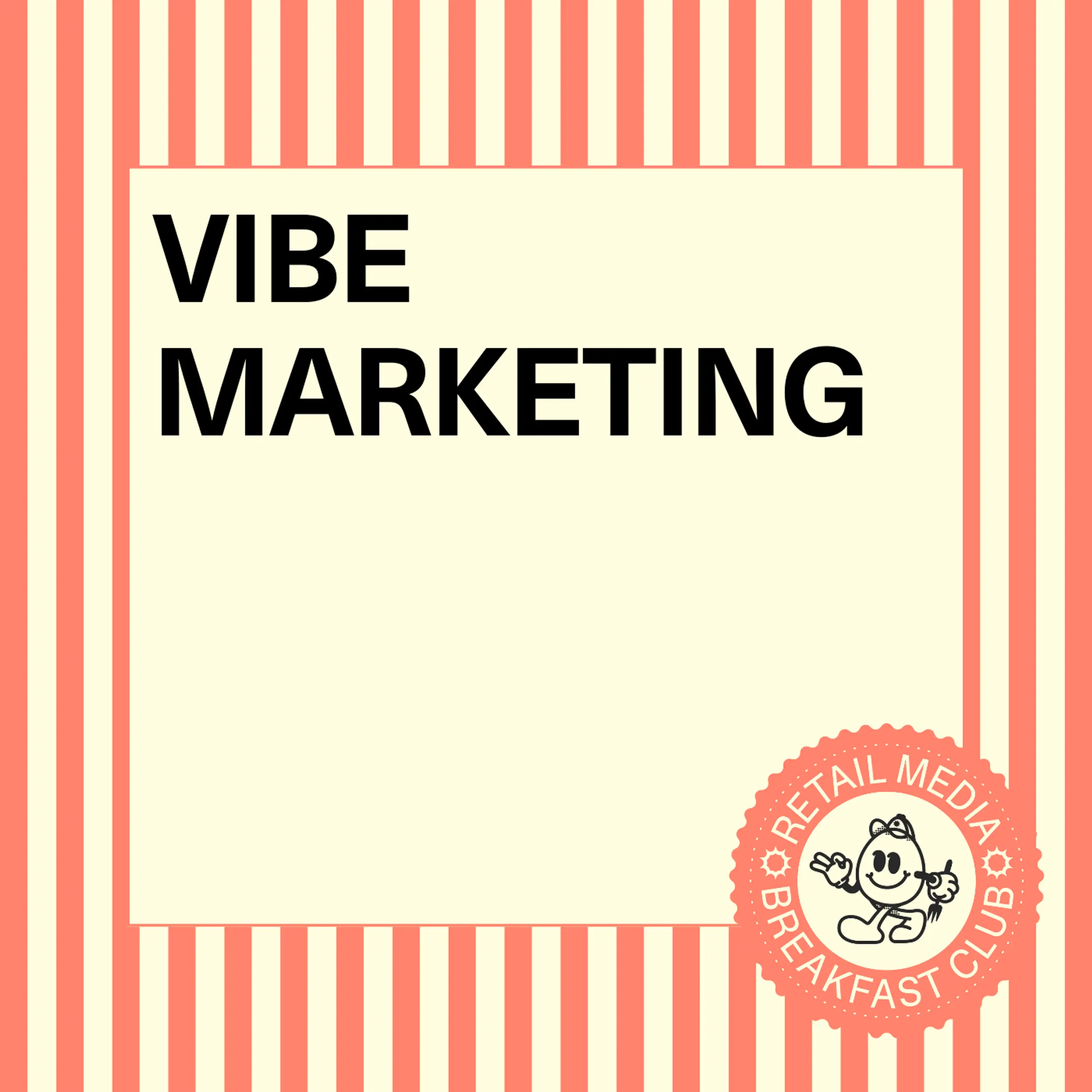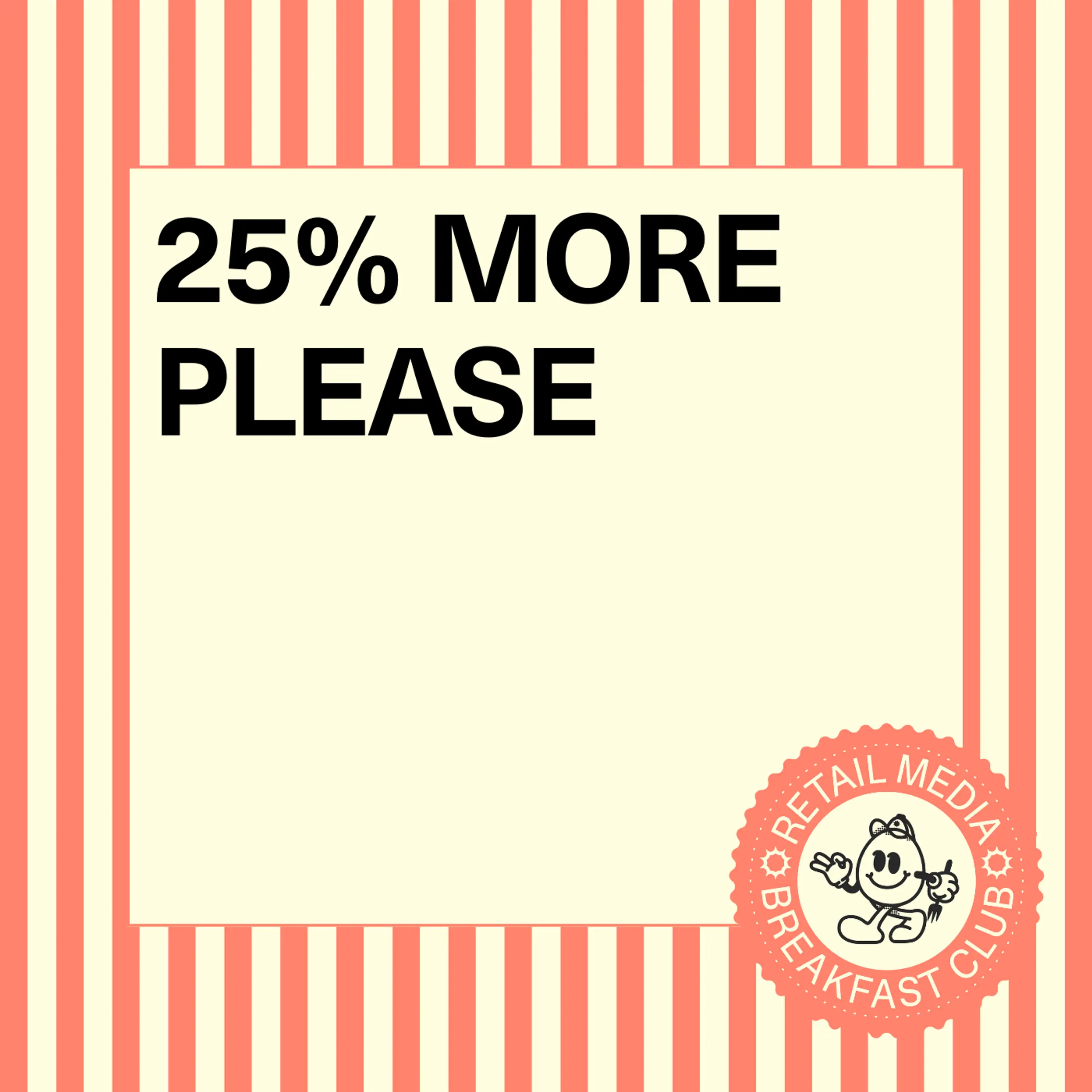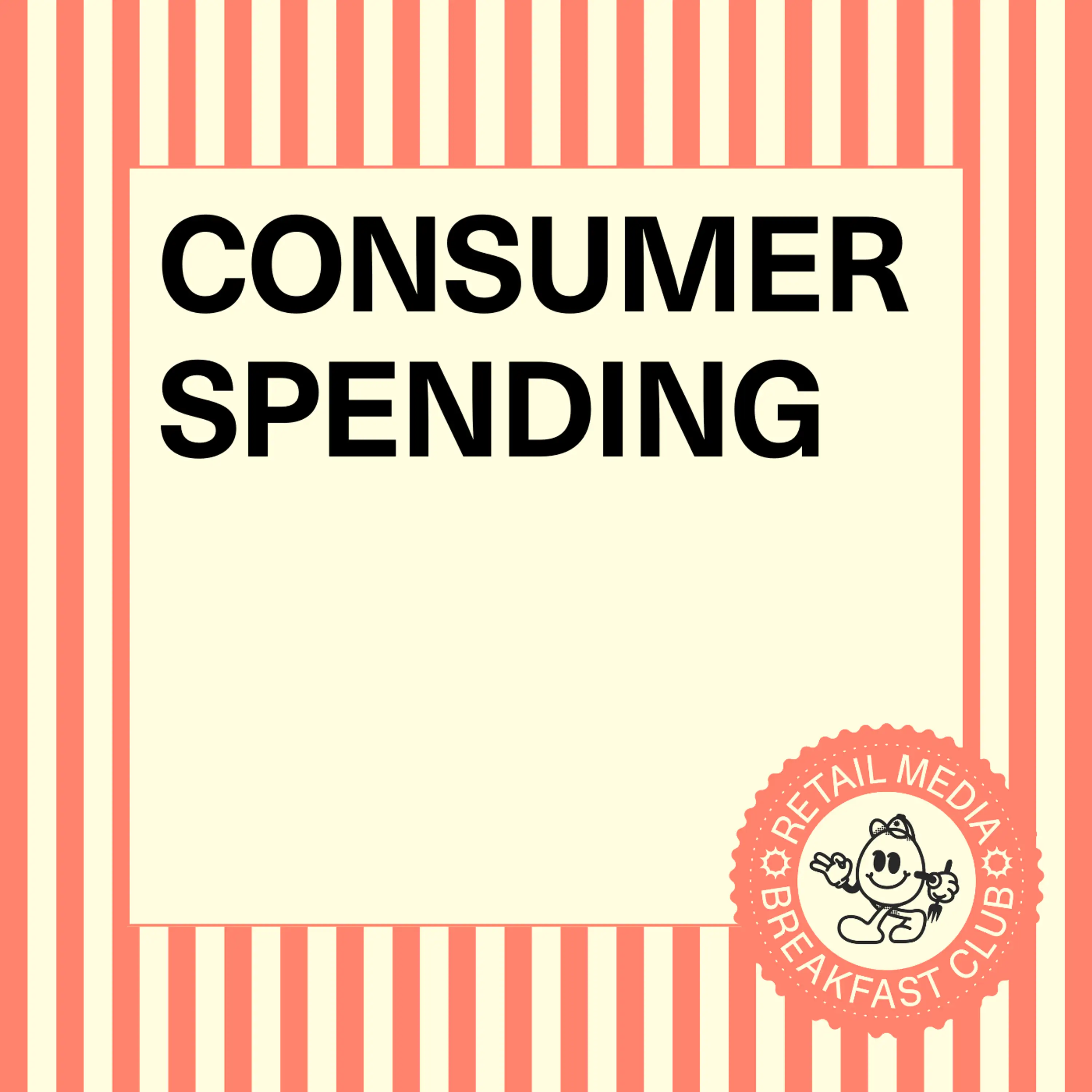Watch Episode Here
Listen to Episode Here
Show Notes
In this practical episode, the host Kiri Masters shares invaluable insights on building your personal brand through speaking engagements, whether you're on the brand side or solution provider side of retail. She breaks down the unique benefits and challenges each group faces when pursuing speaking opportunities, from navigating corporate approvals to maximizing the career-building potential of getting on stage. Drawing from her extensive industry experience, Kiri offers actionable strategies for landing speaking slots, including partnering with solution providers and leveraging original research, while also sharing a helpful database of retail industry events for listeners to explore.
Link to Kiri's Ghost blog on this topic: https://www.retailmediabreakfastclub.com/p/fecfadd7-dbc5-4687-9cee-6c096e6d3c5e/
Link to the retail media industry events database: https://www.retailmediabreakfastclub.com/industryeventsdatabase/
PRODUCED BY:
CHAPTERS:
(00:00) About Today's Topic
(00:51) About the Show
(01:13) Brand Leaders Speaking Opportunities
(02:26) Benefits for Organizations
(04:07) Personal Career Benefits
(05:00) Solution Providers Overview
(06:02) Getting Speaking Approval
(07:42) Leveraging Data and Research
(11:46) Industry Events Database
(13:09) Outro
SOCIAL LINKS:
Website: https://www.retailmediabreakfastclub.com
LinkedIn: https://www.linkedin.com/in/kiri-masters/
YouTube: https://www.youtube.com/@retailmediabreakfastclub
Apple: https://podcasts.apple.com/us/podcast/retail-media-breakfast-club/id1782187624//
Spotify: https://open.spotify.com/show/3s5MuqcrsOmQDKn3uMYJKb
TRANSCRIPT:
Conference season is upon us, and I am missing out this year. I'm so devastated. For a variety of rather banal administrative and bureaucratic reasons, I can't get to any conferences this year until Cannes in June.
So, to cheer myself up a little bit, I want to share some intel I've learned over the years about building your personal brand through events, why you should do it, and how. And I'm also going to include getting up on the stage at industry events, but also getting out there in terms of podcasts and presenting and sharing your expertise with the industry.
I'm gonna talk about what that looks like if you're on the brand side and what that looks like if you're on the solution provider side as well. Let's go.
So first, I'm going to address the brand-side leaders and practitioners out there. Great news, you're in high demand for your point of view. Event organizers, podcast hosts, and journalists all want to hear from you. And the more steamy you are, the hotter a commodity your ideas and experience are.
The bad news is your organization, especially the larger ones, may be a little touchy about what you can and can't say. This can end up creating a lot of work for yourself to get approvals on what you can talk about. I'll share a little bit more on tactics around that later on.
But before we get into that, what are the benefits of doing this? I was really scratching my head a couple of years ago because I was in a position where I wanted to help facilitate more conversations with brand-side leaders while I was on the agency side myself. I went to lunch regularly in Atlanta with brand-side leaders, and I remember this conversation with Celia Van Wyk. Shout out to Celia. I asked, "What's in it for you on the brand side to get up there on stage?" I kind of understand that a lot of the larger organizations wouldn't want to do this.
She gave me a really great take on this that I found a little surprising. She talked about a couple of different areas where this helps you personally, but also helps the company. First of all, it helps with recruiting. It's very helpful, especially if you're a large company, to be out there being seen as a leader and innovator with good leadership and exciting ideas, that you're doing exciting things with technology and partners. That's going to help your organization attract better talent. So that's one reason and a win for the organization.
Second is signaling to your suppliers, to your retail partners, and to prospective retail partners, that you're out there doing things, you're progressive, and you're investing where it counts.
And then number three, for the organization, it can be a win for your partners when you present with them, when you do them a solid when you're getting up there and sharing a case study. You are helping your solution provider partners out with that, and you can expect some great treatment from them when you are getting up there and presenting with them and helping them to look good as well. So, those are benefits for the organization that you can pitch when you're trying to get out there and get approvals to get up on the stage and talk about your experience.
On a personal level, this is pretty obvious, it's going to help you in your career, it's going to help future employers get wind of you, it's going to help with recruiting for your direct team, and it's going to help you build your network of peers who you can text and ask for advice and opinions when you need it. And finally, it just makes the event so much more fun. You have a completely different experience when you're at an event and your badge says "speaker". People will come up to you, people will introduce themselves, and they will talk about your session. It makes the experience so much richer and more fun, and you get so much more out of it. So I really encourage you, on the brand side, even if you're an introvert, even if it scares you, feel the fear and do it anyway.
The second group here is the solution providers, agencies, and tech companies. Great news, your organization really wants you to get on stage and get any publicity you can. You won't have any resistance if you get one of these invitations. The bad news is event providers see you as their meal ticket and expect you to pay for the privilege. And sometimes paying is really the clearest and ultimately the cheapest way to get that opportunity. You can totally still make this work. The benefits here are very obvious beyond all the ones that I mentioned that are relevant to the brand side, still are relevant here. But you get new business and credibility as well.
So how can you get something like this over the line? I have some experience of this from the other side when I'll have a brand-side leader come onto my podcast or share about what sort of internal hoops they had to jump through to get permission to speak about their experience. So there's a couple of different approaches here. One is just ask for forgiveness, not permission.
I won't say who it was or which company it was, but I submitted the questions from my podcast to this individual, they went and got them approved by legal, and when it came time for the interview they said, "Yeah, I got all these Q&As approved. I'm not going to stick to the script really because no offense, Kerry, but they're not going to listen to your show." I was like, "Absolutely no offense taken." But that's sort of a way around it is you get the questions in advance, you write the bullet points, you know you're not going to stick exactly to the script and you might go off script, but you got it all approved. Of course you still must be responsible, you still need to consider who's in the room, is there going to be press there, are there going to be competitors? And balance out what you stand to gain versus what you might lose from being very candid.
The second tactic here is to stick to career lessons and management lessons rather than specific tactics that you're using that might end up in the wrong hands.
And finally, for brands, team up with your solution provider partners who have a huge incentive to build the case studies and do all the legwork of creating the content and the message. They will be very prepared to jump through any hoops necessary, and so it's a win-win for your relationship with them, it's a great win for your partner who deserves it.
Now, if you're on the solution provider side, it's going to be a little bit more difficult for you to get onto the stage. You're either going to have to pay for the privilege or do quite a bit of extra work. And I think it's entirely appropriate and still can be a great win if you pay for the slot to speak, pay to sponsor the event, and pay to get on the stage and present with a client. It's still going to be ticking the boxes that you need it to.
Another approach here that I think a lot of solution providers skip because they just don't have the time or the resources or the ability to make this happen is creating unique research that you can present. You can present this as a downloadable resource where you're collecting opt-ins and leads, and you can be pitching this to podcasts and journalists. And I think if your research gets enough credibility, it's something that you could conceivably present at a large event. And maybe your research and benchmarks get enough of a profile where that's enough of a draw over time where you don't have to pay to get up on the stage, potentially.
I think there's a couple of companies that do this quite well that you can take a leaf out of their book. One is a relative newcomer, Momentum Commerce. I actually just included some of Momentum Commerce's data in two pieces that I wrote for Forbes about the economic blackout, the Buy Nothing Day, back in the end of February, and then the subsequent Amazon boycott in March. And Momentum Commerce saw this opportunity. They tracked the whole event across their customer data, and their PR person pitched me this idea, and they made it so easy for me to include their data in this story. So, this is really underutilized. I think there's so many ways to do this very well.
Another great example here is Packview. A lot of the ad tech companies do this these days where they're tracking CPCs by quarter, by platform, and over time you have this benchmark where you can compare Q3 of this year to Q3 of last year, and are CPCs up or down? By how much and by which category?
So, note here that I'm talking about using your own data, not stated preference surveys from consumers, like a hundred people. There is a huge, huge difference in the credibility here. So, there are tools out there, run a survey and get people to opine on whether they care about sustainability when they're making a purchase. And, of course, everyone's going to say yes, everyone cares about sustainability, but these stated preference surveys are meaningless and so unreliable. We cannot predict our own behavior as humans. And whenever I see a pitch for something like this, it gets deleted, personally.
If you're a solution provider and you collect data, even if you're an agency and you don't have any of your own technology, you can still collect how your clients are thinking about Prime Day this year and what deals are they running, and aggregate that and share that. That's very useful. That's actually what's going to happen or what has happened or how they perform.
This is the type of insight that event organizers, podcasters, and journalists are all dying for. Yes, it takes a little bit of time away from your clients, but this is so defensible and such a great way to build a brand around your topic. I highly recommend chasing down this path if you have the time. If you don't have the time, pay for the speaking slot.
One little resource that I built for you: if you're listening to this show, you can go to my retail industry events database. This is where I've painstakingly compiled all of what I consider essential relevant events in the retail media space. I've put them all in one place, including the dates, where it's held, and a little description. If you care to know which ones I'm attending this year (yes, no, or maybe), that's also in there as well. You can give me a shout if you plan to be at these events later in the year.
Go to retailmediabreakfastclub.com/industryeventsdatabase. That's retailmediabreakfastclub.com/industryeventsdatabase. I'll put the link in the description as well.
Please put yourself out there. Apply to speak at events and get yourself ready for next year. Maybe as you're going out to these events this year, pay attention to who's on the stage. Go up to the people who got on the stage and ask them what they did and what they got out of it. Start researching for next year. I want to see you up on that stage. I will be at the events next year. Let's go.





